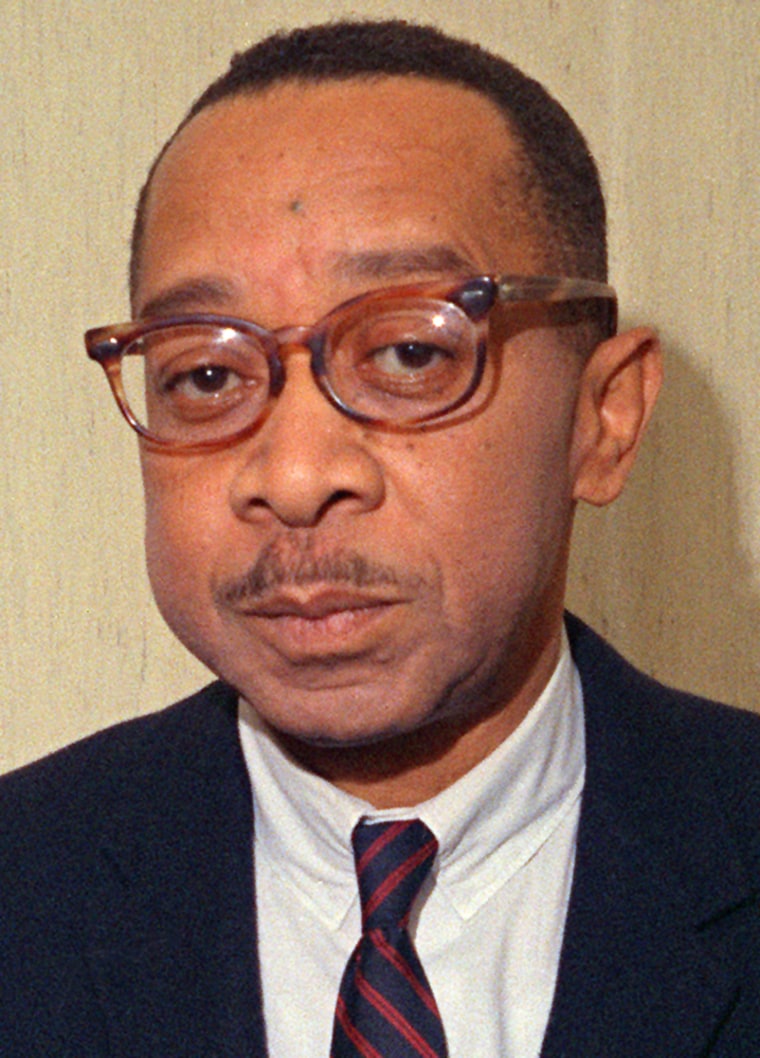Kenneth B. Clark, an educator and psychologist who spent his life working for racial integration and improvement in the education of black children, has died. He was 90.
Clark’s daughter, Kate C. Harris, told The New York Times in Monday’s editions that her father died Sunday at his home in Hastings-on-Hudson. The cause of death was not immediately known.
Clark’s pioneering study on the effects of racial discrimination was cited by the U.S. Supreme Court in its historic 1954 ruling in Brown v. Board of Education, which declared segregation in public schools unconstitutional.
Pioneering educator
He was the first black professor to gain tenure at the City University of New York and was a distinguished professor emeritus at City College. He also taught at Harvard, Columbia and the University of California.
For 20 years he served on the New York State Board of Regents, which oversees public education in the state, and was sometimes described as the conscience of the board.
Theodore Black, board chancellor part of that time, said Clark was a persuasive advocate: “He would never come out with all guns blazing. Instead, he relied on his mastery of the art of language.”
In 1950, Clark prepared a study which showed that school segregation marred the development of white as well as black students. The Supreme Court cited those findings in its unanimous 1954 decision.
Chief Justice Earl Warren wrote that separating black children from white “solely because of their race generates a feeling of inferiority as to their status in the community that may affect their hearts and minds in a way unlikely ever to be undone.”
Frustrated by institutional racism
Thirty years after that landmark ruling, Clark described himself as “bewildered” at the persistence of de facto segregation and inferior education for many blacks.
“I believed in the 1950s that a significant percentage of Americans were looking for a way out of the morass of segregation,” he said in a 1984 interview with The New York Times. “It was wishful thinking.
“It took me 10 to 15 years to realized that I seriously underestimated the depth and complexity of Northern racism. ... In the South, you could use the courts to do away with separate toilets and all that nonsense. We haven’t found a way of dealing with discrimination in the North.”
In his Who’s Who entry, Clark wrote, “Probably the most difficult value for me to live by, rather than to just verbalize, is that of maintaining a genuine and functional compassion for those human beings who do not share my values.”
Mother steered him toward college
Kenneth Bancroft Clark was born July 24, 1914, in the Panama Canal Zone where his father was a passenger agent for the United Fruit Co. When Clark was 5, his mother insisted on moving him and his younger sister to New York City.
His father stayed behind as the family settled in a Harlem tenement. His mother worked in a sweatshop as a seamstress and subsequently helped organize her fellow workers into a union and became their shop steward.
Clark attended public schools but was steered toward learning a trade — advice which made his mother livid when she learned about it.
“Mama stormed into the school, more the shop steward than the lady she usually was,” he recalled. “She told my counselor, ‘I don’t give a damn where you send your son, but mine isn’t going to any vocational school.”’
And he did not. He attended Howard University, where one of his instructors, Ralph J. Bunche, became a major influence. He got his master’s at Howard, married fellow student Mamie Phipps, and they both earned doctorates in psychology at Columbia University.
He took part in research that contributed to Swedish economist Gunnar Myrdal’s classic study of race relations, “An American Dilemma,” and then became an instructor in the psychology department at City College in 1942.
Small man cast long shadow
The slightly built Clark was a smiling presence in front of his classes, with a self-effacing manner bordering on diffidence that was surprising to some who expected him to hurl thunderbolts, a former student recalled.
In 1946, he and his wife formed what became the Northside Center for Child Development to treat children with personality disturbances. He served as a consultant to the personnel department of the U.S. State Department during the 1960s.
At one point Clark fought for decentralization of New York City schools but he later pronounced that experiment a failure: “I though it would improve the quality of schools, but I turned out to be wrong as hell.”
He never abandoned his belief in the importance of education in overcoming racism. “I think that white and blacks should be taught to respect their fellow human beings as an integral part of being educated,” he said.
“A racist system inevitably destroys and damages human beings; it brutalizes and dehumanizes them, blacks and whites alike,” he wrote.
His books included “Prejudice and Your Child” and “Dark Ghetto.” He was a past president of the American Psychological Association. Among his honors were the NAACP’s prestigious Spingarn Medal in 1961 and the Four Freedoms award in 1985.
After retiring from the Board of Regents, he set up a consulting company in Westchester County.
His wife died in 1983. In addition to his daughter, he also is survived by a son, Hilton.
